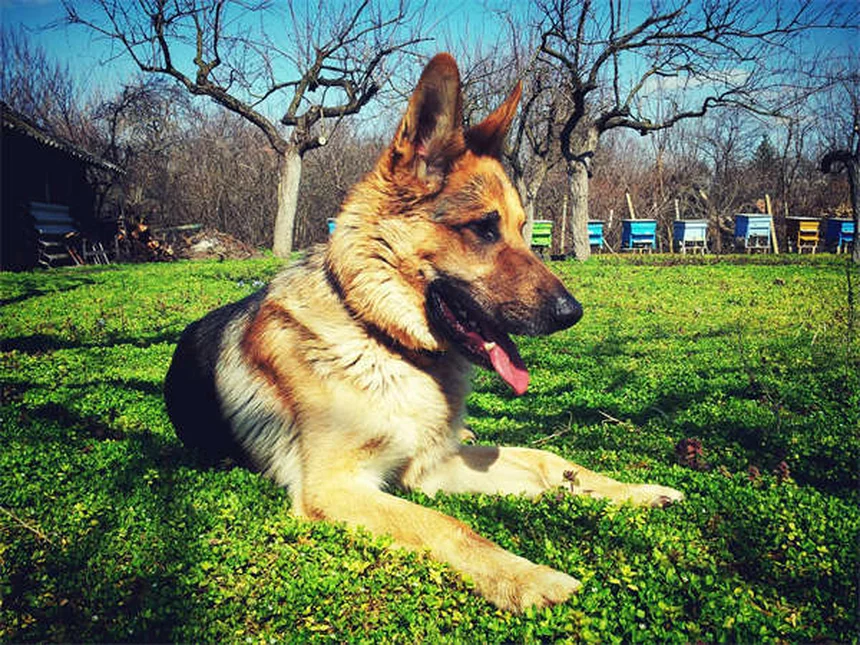What is guinea pig dystocia? The answer is simple but scary: It's when your pregnant guinea pig can't deliver her babies safely. The main culprit? That stiff pelvic joint that won't stretch enough after 7 months of age. First-time moms over 7 months old face the highest risks - we're talking life-threatening complications for both mom and pups. But here's the good news: You can prevent this nightmare by breeding at the right age (4-8 months) or better yet, keeping males and females separate. I've seen too many heartbroken owners who didn't know the risks - let me help you avoid becoming one of them.
E.g. :5 Best Hamster Breeds for Pets: Which One Is Right for You?
- 1、When Guinea Pigs Struggle During Birth
- 2、The Emotional Side of Guinea Pig Birth
- 3、Final Thoughts on Guinea Pig Care
- 4、Understanding Guinea Pig Reproduction Basics
- 5、Nutritional Needs During Pregnancy
- 6、The Financial Reality of Breeding
- 7、Alternative Ways to Enjoy Guinea Pigs
- 8、Myth-Busting Common Guinea Pig Beliefs
- 9、FAQs
When Guinea Pigs Struggle During Birth
What Exactly Is Dystocia?
Let me tell you about something called dystocia - it's when guinea pigs have serious trouble giving birth. Imagine trying to push a basketball through a tennis racket! That's kind of what happens when the pelvic bones of older female guinea pigs can't stretch enough.
The real issue comes from this special joint called the symphysis. In young guinea pigs, it's flexible like rubber, but as they get older - especially after 7 months - it hardens like dried glue. First-time moms over 7 months old are most at risk because their bodies haven't had the "practice stretch" from previous births. Did you know that in these cases, both mom and babies often don't survive? That's why timing is everything!
Spotting Trouble: Warning Signs
How can you tell if your furry friend is in trouble? Look for these red flags:
- Blood where there shouldn't be any
- Loud squeaks of pain (guinea pigs usually stay quiet when giving birth)
- Pushing for hours with no results
- You might see a tiny foot or nose, but nothing else comes out
- The due date came and went like a missed bus
Here's something scary - have you ever wondered why C-sections don't usually work for guinea pigs? It's because their tiny bodies just can't handle the surgery. The survival rate is shockingly low, which is why prevention is so crucial.
 Photos provided by pixabay
Photos provided by pixabay
Why Does This Happen?
The main villain in this story is that stiff symphysis joint we talked about. After 8 months, it becomes as flexible as a brick wall. But here's an interesting fact - if a guinea pig has given birth before, her body remembers how to stretch!
| Age | Risk Level | Chance of Safe Delivery |
|---|---|---|
| 3-6 months | Low | 90% |
| 7-8 months | Medium | 60% |
| Over 8 months | High | Less than 20% |
See how the numbers drop? That's why we recommend breeding between 4-8 months - it's the sweet spot when their bodies are most ready.
What the Vet Will Do
When you rush to the vet (and you should rush!), they'll first ask about symptoms. Then comes the X-ray - it shows if the babies are too big for mom's pelvis. Sometimes they try oxytocin, a drug that supercharges contractions. But if that doesn't work... well, let's just say the options get scary fast.
Here's a tough truth - even with the best care, many guinea pigs don't make it through dystocia. Their bodies are just too delicate. That's why I always tell people: "Prevention is better than emergency vet visits!"
Aftercare for Survivors
If by some miracle mom and babies pull through, they'll need:
- A quiet space (no noisy kids or other pets)
- Extra vitamin C in their diet
- Lots of fresh hay and water
- Absolutely no male visitors!
And here's a pro tip - keep males away permanently unless you want more babies. Guinea pigs can get pregnant again almost immediately, and trust me, you don't want to go through this twice!
 Photos provided by pixabay
Photos provided by pixabay
Why Does This Happen?
Want to avoid this nightmare completely? You've got three options:
- Breed before 8 months (the safest window is 4-6 months)
- Keep males and females in separate zip codes (okay, separate cages)
- Get them fixed - spay/neuter is the ultimate birth control
Did you know that many vets actually recommend against breeding guinea pigs at all? Between the birth risks and the challenge of finding homes for all those babies, it's often not worth the heartache.
The Emotional Side of Guinea Pig Birth
Why This Hits Hard for Owners
Losing a pet is always tough, but dystocia makes it worse because it often takes both mom and babies. I've seen grown adults cry in my office - and I don't blame them one bit. These little furballs wiggle their way into our hearts so easily.
The worst part? Many owners don't even know the risks until it's too late. That's why I'm shouting this from the rooftops: Educate yourself before breeding! A little knowledge could save lives.
Making the Right Choice
Here's a question to chew on - is breeding guinea pigs ever really a good idea? Think about it: pet stores are overflowing with them, shelters have waiting lists, and the birth process is dangerous. Maybe the kindest thing is to enjoy your pets without adding to the population.
But if you're determined to breed, at least do it smartly. Track ages carefully, have an emergency vet fund (these visits aren't cheap!), and line up homes for the babies beforehand. Remember - responsible breeding starts with you.
Final Thoughts on Guinea Pig Care
 Photos provided by pixabay
Photos provided by pixabay
Why Does This Happen?
Whether your guinea pig is pregnant or not, their home should be:
- Spacious (no tiny cages!)
- Clean (dirty bedding causes infections)
- Stress-free (loud noises can trigger early labor)
And don't forget about diet! Pregnant guinea pigs need extra nutrients. I recommend:
- High-quality pellets
- Fresh veggies daily
- Unlimited timothy hay
- Vitamin C supplements
When to Call the Vet
With guinea pigs, it's always better to call too early than too late. Watch for:
- Loss of appetite (they should always be hungry!)
- Lethargy (guinea pigs are usually active)
- Strange discharge
- Any behavior that seems "off"
Remember - you know your pet best. If something feels wrong, it probably is. Don't wait until it's too late to seek help!
Understanding Guinea Pig Reproduction Basics
The Unique Biology of Guinea Pig Pregnancy
You might be surprised to learn that guinea pigs have one of the longest pregnancies among small rodents - about 59-72 days! That's nearly double the gestation period of hamsters. This extended pregnancy means the babies develop more completely before birth, which explains why guinea pig pups are born fully furred with their eyes open.
Here's something fascinating - did you know guinea pigs can get pregnant again immediately after giving birth? It's called postpartum estrus, and it's why responsible owners separate males and females well before the due date. I've seen cases where back-to-back pregnancies completely exhaust the mother's body, leading to serious health complications.
The Social Dynamics of Breeding
Ever noticed how guinea pigs are super social animals? This plays a huge role in successful breeding. A stressed or lonely female often has more complications during pregnancy and birth. That's why I always recommend keeping pregnant females with a calm companion (another female, of course).
But here's the kicker - introducing unfamiliar guinea pigs during pregnancy can be disastrous. The stress of establishing dominance hierarchies might cause miscarriage. I once had a client who learned this the hard way after introducing a new cage mate to her pregnant guinea pig. Social stability is crucial for expectant guinea pig moms!
Nutritional Needs During Pregnancy
Essential Nutrients for Mom and Babies
Pregnant guinea pigs need about 30-50% more food than usual, but it's not just about quantity. The quality matters tremendously. They require:
- Extra vitamin C (about 50mg daily)
- Increased calcium for bone development
- More protein for growing babies
- Plenty of fiber to keep digestion moving
Want to know a common mistake I see? Owners feeding too many fruits because they're high in vitamin C. While oranges and strawberries are great treats, they're also packed with sugar. Instead, focus on vitamin C-rich veggies like bell peppers and kale - your guinea pig's waistline will thank you!
Dangerous Foods to Avoid
Some everyday foods can be downright dangerous for pregnant guinea pigs. Iceberg lettuce, for example, offers almost no nutrition and can cause diarrhea. And those commercial treats shaped like colorful cookies? They're often loaded with sugar and artificial ingredients.
Here's a pro tip: alfalfa hay becomes extra important during pregnancy because of its higher calcium and protein content. But switch back to timothy hay after weaning to prevent urinary stones. It's all about timing those dietary changes right!
The Financial Reality of Breeding
Unexpected Costs of Guinea Pig Parenthood
Think breeding guinea pigs will save you money on buying pets? Think again! The vet bills alone can shock you. Emergency C-sections often cost $500+, and that's if the mother survives. Then there's:
| Expense | Average Cost | Frequency |
|---|---|---|
| Prenatal Checkups | $50-100 | 2-3 visits |
| Emergency Care | $300-800 | If needed |
| Baby Supplies | $100-200 | One-time |
| Food Increase | $20-40/month | Entire pregnancy |
And here's something most people don't consider - what if you end up with 5 babies instead of the expected 2-3? Suddenly you're looking at multiple cages, more vet bills for neutering, and years of care. Breeding guinea pigs is definitely not a money-saving strategy!
Time Investment Considerations
How much free time do you really have? Caring for a pregnant guinea pig and her eventual litter is like having a part-time job. You'll need to:
- Monitor mom 24/7 as due date approaches
- Prepare emergency supplies (critical care food, heating pad, etc.)
- Socialize babies daily once they're born
- Clean cages more frequently
- Screen potential adopters thoroughly
I once had a college student client who underestimated this time commitment. Between classes and breeding guinea pigs, something had to give - and it wasn't pretty. Honestly evaluate your schedule before deciding to breed!
Alternative Ways to Enjoy Guinea Pigs
Adoption: The Responsible Choice
Why breed when shelters are overflowing with adorable guinea pigs needing homes? Many rescue organizations have waiting lists for surrendered pets. By adopting, you:
- Save a life
- Skip the pregnancy risks
- Often get pets already spayed/neutered
- Support important rescue work
Plus, adopted guinea pigs can be just as loving and fun! My first guinea pig was a rescue, and she had the most amazing personality. Don't believe the myth that only bred guinea pigs make good pets - that's total nonsense.
Fostering Opportunities
Want the joy of baby guinea pigs without the breeding risks? Many rescues need foster homes for pregnant moms or orphaned babies. You get to:
- Experience the miracle of birth safely
- Help socialize babies
- Make a real difference
- Return them when ready (or adopt your favorite!)
Fostering gives you all the warm fuzzies of raising guinea pigs while leaving the medical responsibilities to the rescue organization. It's the perfect compromise for animal lovers!
Myth-Busting Common Guinea Pig Beliefs
"They're Easy Starter Pets"
Who started this ridiculous myth? Guinea pigs require just as much care as dogs in many ways. They need:
- Large, clean living spaces
- Daily fresh vegetables
- Regular vet checkups
- Constant companionship
- Mental stimulation
And here's the truth bomb - they live 5-7 years! That's a longer commitment than most college degrees. Calling them "starter pets" does these complex creatures a huge disservice.
"Breeding Them is Natural"
Just because something occurs in nature doesn't mean it's safe or ethical in captivity. In the wild:
- Many babies don't survive
- Mothers have constant access to varied diets
- Predators naturally control populations
- There's unlimited space to separate males
Our homes can't replicate these conditions. That's why responsible pet ownership sometimes means going against "nature" to ensure health and safety. It's not about playing God - it's about being a good caretaker!
E.g. :Difficulty Giving Birth in Guinea pigs | PetMD
FAQs
Q: How can I tell if my guinea pig is having dystocia?
A: Watch for these emergency signs: blood from the birth canal, painful squeaking (they're usually silent during birth), or straining for hours with no results. Sometimes you'll see a tiny foot stuck out but no progress. If the due date has passed with no babies, sound the alarms! Here's what many owners don't realize - normal guinea pig labor is quick. If your girl's been struggling more than 30 minutes, don't wait. Grab your car keys and get to an exotic vet immediately. Every minute counts when dealing with dystocia in guinea pigs.
Q: Why are C-sections so dangerous for guinea pigs?
A: Great question! Guinea pigs have incredibly delicate systems - their tiny bodies often can't handle the stress of surgery. The survival rate is shockingly low (less than 20% in most cases). Here's why: Their respiratory systems are fragile under anesthesia, they're prone to shock, and post-op infections are common. I always tell clients - prevention is your best weapon against dystocia. Once labor starts going wrong, the options become extremely limited and risky.
Q: What's the safest age to breed a female guinea pig?
A: The golden window is 4-6 months - that's when their pelvic joints are most flexible. After 7 months, the risk jumps dramatically. Here's a pro tip: If you must breed, choose a female who's had previous litters successfully. Their bodies "remember" how to stretch. But honestly? With shelters overflowing, we recommend enjoying your pets without breeding. Spaying eliminates all dystocia risks and prevents uterine cancers too!
Q: Can dystocia be treated at home?
A: Absolutely not - this is a life-threatening emergency requiring immediate vet care. While waiting to get to the clinic, keep mom warm and quiet, but don't try DIY solutions. I've heard horror stories about owners attempting to pull out stuck babies - this often causes fatal injuries. Your vet may try oxytocin injections or manual assistance, but these require professional expertise. Remember: With dystocia, you're racing against the clock to save both lives.
Q: How can I prevent dystocia completely?
A: Three foolproof ways: 1) Never breed females over 8 months old, 2) Keep males and females in separate cages (they can breed through bars!), or 3) Get them spayed/neutered. Here's something most pet stores won't tell you - guinea pigs reproduce like crazy and the birth process is inherently risky. We actually discourage breeding unless you're an experienced breeder with vet backup. Your safest bet? Adopt fixed guinea pigs and enjoy them without the reproductive risks!


